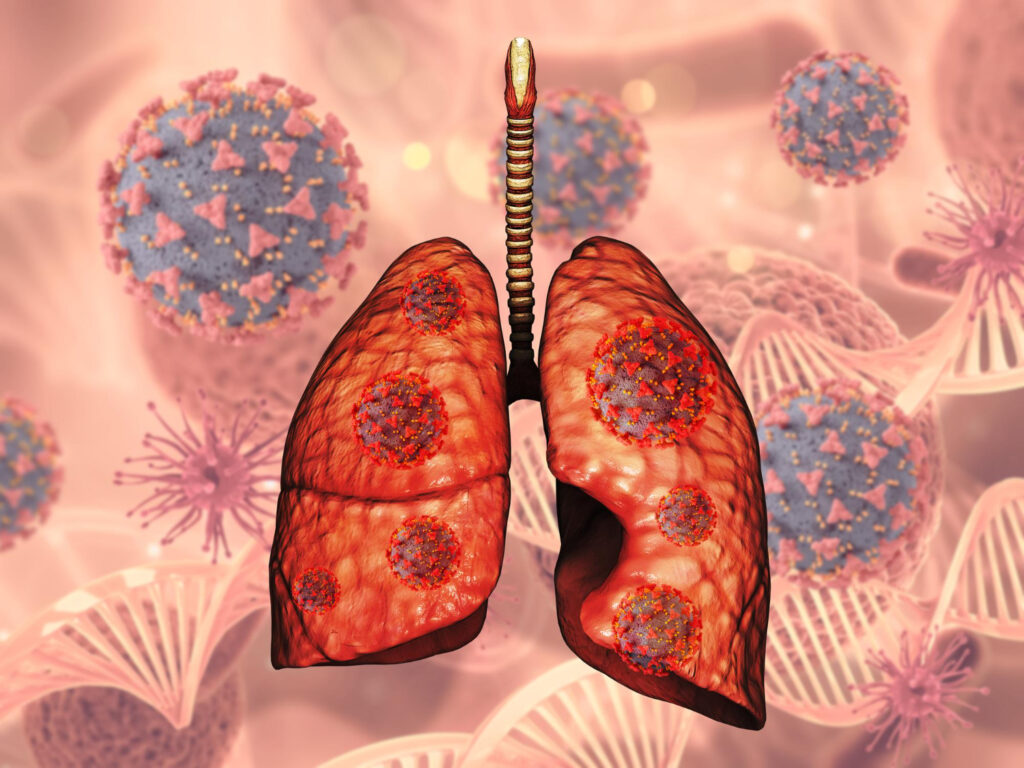Stage 3 lung cancer, commonly known as locally advanced lung cancer, is a type of lung cancer categorization that denotes the extent and severity of the illness. Staging allows doctors to see how far the cancer has gone and informs therapy selections.
Stage 3 lung cancer is classified into two types:
Stage 3A Lung disease:
The disease has often expanded to adjacent lymph nodes but has not yet migrated to distant sections of the body at this stage. The size and location of the tumor determine the stage of 3A lung cancer.
Stage 3A1:
The tumor has grown in size or migrated to surrounding tissues such as the chest wall or lung lining, but it has not spread to the lymph nodes on the other side of the chest.
Stage 3A2:
The tumor has migrated to neighboring lymph nodes on the same side of the chest as the main tumor, although it is smaller.
Stage 3B Lung disease:
At this stage, the disease has progressed across the chest and may have affected adjacent tissues and lymph nodes. It may also have an effect on neighboring organs.
The severity of Stage 3B Lung Cancer might vary, depending on factors such as tumor size and location, number of afflicted lymph nodes, and involvement of surrounding structures.

Treatment for stage 3 lung cancer
Stage 3 lung cancer, also known as locally advanced lung cancer, is often treated with a mix of medicines targeted at managing the disease and enhancing the patient’s quality of life. The particular treatment approach will differ based on the kind of lung cancer (non-small cell lung cancer or small cell lung cancer), the location and size of the tumor, the patient’s overall health, and other individual considerations.
The following are the principal treatment options for stage 3 lung cancer:
Surgery: Surgery may be a possibility in certain patients with stage 3 lung cancer. This usually entails a lobectomy or pneumonectomy, in which a piece of the lung or the entire lung is removed. If the tumor is in a surgically accessible position, surgery is usually recommended for stage 3A lung cancer. Because of the amount of cancer spread, it is less often employed for stage 3B.
Radiation Therapy: Radiation therapy is a popular therapeutic option for stage 3 lung cancer. It targets and destroys cancer cells using high-energy X-rays or other kinds of radiation.
Radiation treatment is classified into two types:
External Beam Radiation: This sort of radiation therapy is given from outside the body by a machine.It is used to target the tumor and adjacent lymph nodes.
Brachytherapy: In certain circumstances, radioactive elements are injected directly into or around the tumor.
Chemotherapy: is the employment of medications to either kill or halt the development of cancer cells. It is frequently used in conjunction with radiation therapy (chemoradiation) to improve therapeutic efficacy.
Targeted Therapy: Medication meant to target certain genetic mutations or proteins that promote cancer cell proliferation. These therapies are most typically utilized for non-small cell lung cancer (NSCLC) and need testing to determine the best targets.
Immunotherapy: Immunotherapy medications function by stimulating the immune system to detect and fight cancer cells. They have shown promise in the treatment of lung cancer, especially when other therapies have failed.
Clinical studies: Some stage 3 lung cancer patients may be able to participate in clinical studies. Clinical trials are used to explore novel medicines or combinations of treatments that may provide superior results.
Palliative Care: Palliative care aims to improve the quality of life for patients with advanced lung cancer. It can help control treatment symptoms and side effects, provide emotional support, and improve overall well-being.

